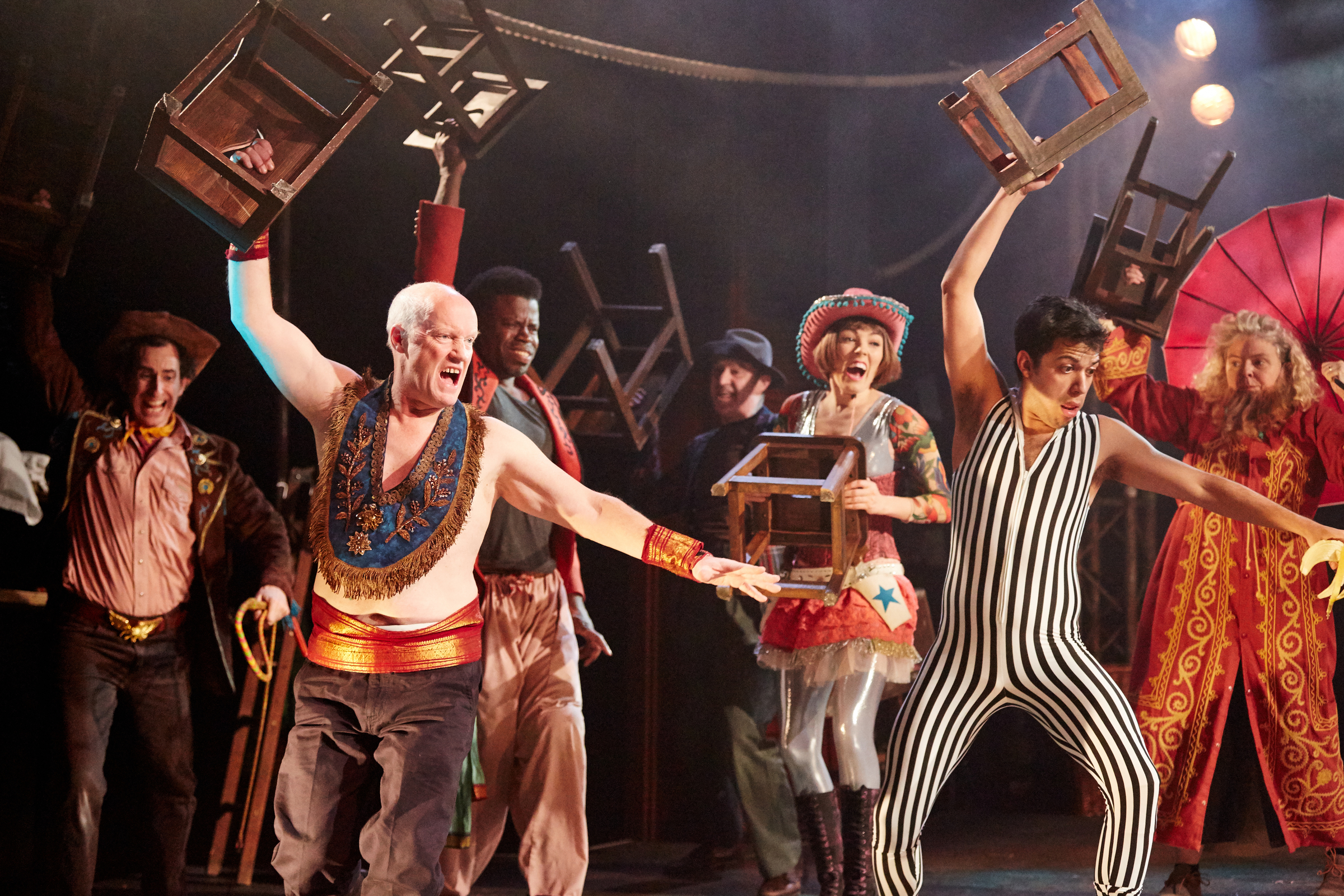The Lionboy Trilogy
I wrote a trilogy of children's books with my mum Louisa Young, under the pseudonym 'Zizou Corder'. The trilogy has been published in over 35 languages, and we've travelled the world promoting it and meeting fans and publishers. We sold the film rights to Dreamworks (Spielberg), and then to Warner Brothers, but as yet no film has been made...
They're about about a young boy named Charlie Ashanti who can speak Cat, after accidentally swapping blood with a leopard cub. Charlie is on the run on a floating circus, with six lions in tow, aiming to return them to the wilds of Morocco and to rescue his parents who have been kidnapped by a sinister corporation known as the Corporacy.
The first book is called Lionboy. The sequel, Lionboy: The Chase, continues the story of Charlie and the lions, with most of the story set in Venice. It was published by Puffin in the summer of 2004. The final instalment of the trilogy, Lionboy: The Truth, concludes the story, mostly at the Corporacy HQ, and was published in January 2006.
Acclaimed theatre company Complicite created a stage show (their first for a family audience) which toured the UK May 29 - July 21 2013, and a revised version toured the world in 2014-15, including to Hong Kong, Seoul, Cape Town, and NYC - on Broadway!
Read our piece in the Guardian about the production here, a review of the Broadway show here, and an interview with me and mum about the book series here (don't judge the picture, I was only 8).
Other books by Zizou Corder include HALO, set in ancient Greece, and Lee Raven: Boy Thief, in the same dystopian future London as Lionboy. Mum and I worked on these together but they were more her projects than mine.
I Call Myself a Feminist
I contributed a 1,000 word essay to this collection, titled 'Women should get to be rubbish too'. To quote the (entirety of the) Independent's review...
'The editors of this collection of short essays have got it right where so many others have failed: instead of presenting feminism as a domain populated exclusively by middle-class white women, this book features essays by women from a diverse range of ethnicities and backgrounds. It’s refreshing and eye-opening and much needed.
Of course, there are plenty of contributors who tick the middle-class white woman boxes and, as someone who ticks those boxes myself, I certainly identified with them. Particularly moving is journalist and dating columnist Caroline Kent’s powerful account of being raped as a teenager and the “sublime sort of comfort” she has found in feminism.
It’s heartening to read about Emmeline Pankhurst’s great-great-granddaughter Laura, proudly continuing to fly the flag for equal rights, and it would have been remiss not to include an entry by Laura Bates, founder of the Everyday Sexism Project.
But, gratifyingly, I Call Myself a Feminist has reserved a decent proportion of space for the voices and experiences of young women of colour, giving readers who might not ordinarily identify with feminism or see a place for themselves at the table the chance to connect with those whose experiences of sexism and other forms of prejudice more closely reflect their own.
Canadian student Maysa Haque is a case in point. She describes how, aged 12, she decided to wear the hijab in hopes of bringing about “positive Muslim public relations”, influencing how people viewed Muslims by making sure she was always on her “best behaviour”. After moving to France, Haque discovered that by wearing her headscarf she experienced less sexual harassment – but that removing it helped reduce religious discrimination.
If you aren’t already familiar with the writing of June Eric-Udorie, 17, prepare to be blown away. She describes growing up in Nigeria, eager to be a good Christian girl, but angry at the sexist attitudes to which she was exposed. Finally, at the grand age of 11, she thought, “Fuck it, I’m going to call myself a feminist.” Udorie emphasises her commitment to the feminist cause, despite being warned that this belief system had “corrupted” her, that it was “not part of my culture, it was incompatible with my religion and it was un-African”.
I Call Myself a Feminist might be specifically targeted at younger women but readers of any age stand to learn a whole lot from this anthology.'
Other press:
10 books every woman should read - Cathy Rentzenbrink in Stylist
'Rousing stuff' - The Guardian
'I Call Myself a Feminist provides a lively and heartfelt introduction to many of the flash points of feminism, and manages to be both relatable and inspirational.' Holly Williams, Independent
Merry Art
Founded in 2008, Hannah Barry's eponymous gallery grew out of a series of temporary exhibition projects in South London before establishing a permanent home in Peckham.
Collaborating with critic, writer and academic Donatien Grau, she commissioned Merry Art — The Most Intense Experience With Art, a book that gathers personalities from art, literature and fashion, as well as from business and politics telling their most intense experience with art in 200 words. Rita Ackermann, Richard Armstrong, Olivier Zahm and Donatien Grau, who co-edited the book, are amongst the contributors.
“Merry Art is a manifesto for remembrance, in the present, towards the future. It is our hope that reading it will count as one of the reader’s most intense and inspiring experiences.” - HB
My contribution is an account of my vivid memories of afternoons at my aunt Emily Young's studio, wandering among the sculptures and marvelling at the huge hunks of rock while mum and she chatted. Whether it was my "most intense experience" I couldn't say, but it is definitely a much treasured memory.










